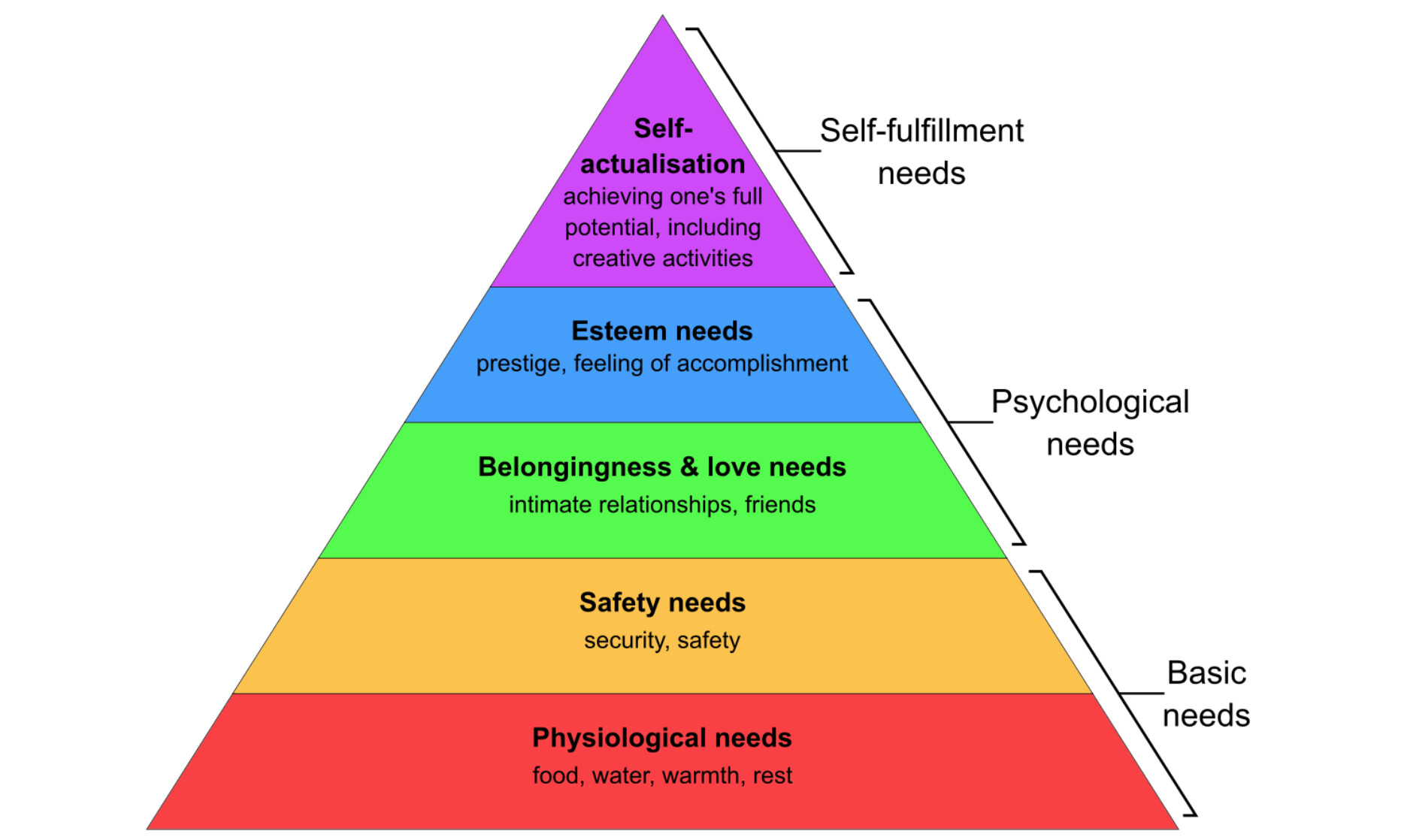Log In


Awa Sabrina Ottiger
Supporter-Profil
Share
Knowledge
Topics:
Communication, Learning, Motivation, Stress
Life areas:
-
Methods:
Psychological counselling
Approach:
-
Age group:
Adults
Language:
English
We are needy! - An exploration of human needs
Today I would like to talk about being "needy". As this notion is becoming more and more popular in my therapeutic work with my clients, I would like to understand it better. Because I am confused about what "needy" really means. So far, what I know is that the term "needy" comes up in my social circle in expressions that I find horrible and even a bit disgusting, e.g. "He is so needy", "I can't stand it when she gets so needy", "I don't want to appear needy".
Feeling "needy" is often a consequence of years of conditioning and feeling "not good enough" or not worthy. We have also probably been regularly told that we are "too much" and "too clingy", rather than being given empathic understanding so that we can explore our needs and fears in the first place. It is highly interesting to talk about the development of neediness in people, but today we want to approach the topic of neediness in a different way. We will take neediness back to its basics in order to understand it in the context of human needs.
So before we come to the conclusion that being needy or experiencing it is unpleasant, let's start from the beginning. Don't worry, we won't go all the way back to its etymological heritage, but start our exploration with a look at the Oxford Dictionary, which defines "needy" as follows:
Needy
1. not having enough, money, food, clothing, etc. OR
2. not being self-confident and needing a lot of love and emotional support from other people.
While the first definition tends to refer to people who are "needy" in an existential, socio-economic context, the second definition seems to refer to people with excessive emotional needs.
I think we can all agree that the first definition defines basic human needs for survival. This first definition seems to have nothing to do with the one we want to talk about - but hold your horses. Picture this: You get a picture that shows a group of people in front of their building that has been leveled by an earthquake. Without further context, you know by the sight of their ragged clothes, their hunched bodies and their helpless, desperate expressions that they are going through an existential crisis. These people are desperate and in need of support. To classify these people in the picture as "in need" seems not only legitimate and appropriate, but also important to trigger a response of support. "These people are in need. We need to act now." The label "needy" can trigger a strong response because the word conveys the message that basic human needs are not being met and we must act now to ensure their survival.
If I were to ask you to list a few human needs right now, I'm pretty sure the list would start by naming the basic human needs for water, food, sleep, shelter and safety. Maybe you would even mention the need for social contact, love and learning. But maybe not.
If we look at the second definition of being needy, we see that the need for love and social support is mentioned. However, the way it is worded is very different from the first definition. The need for love and social support described seems less factual and urgent, but feels judgmental. In fact, the second definition paints a picture of an incapable, pathetic person who cannot self-soothe. So when we talk about an emotionally needy person, we don't react with immediate care and action as we used to, but with anger, irritation and even disgust.
I find this fascinating. It's fascinating how different human needs can trigger such opposite reactions. This makes me think of Maslow's profound work on human needs and I wonder if he can shed more light on this phenomenon?
Understanding 'neediness' from Maslow's perspective
Maslow (1943), a humanistic psychologist, was fascinated by humans and had high hopes for their ability to become the best version they could be. In his hierarchy of needs, Maslow aims to capture universal human needs. If we look at the pyramid below, we can see that Maslow distinguishes between basic needs and psychological needs. We could now argue a similarity between Maslow and the Oxford Dictionary definition and bluntly state, "You see, basic needs are the foundation of life! These are the needs we have to satisfy! That's all that matters!"
You know what, I agree with you - to a certain extent. Yes, the basic needs are at the base of the hierarchy of needs and indeed must be met before anything else to ensure survival. Only then do the other needs have a chance to develop at all. (However, there are several cases where it becomes clear that even if the basic needs are met, survival is not assured if there is no love and especially no maternal contact [see Harlow's - sad and disturbing - empirical work on monkeys in the 1950s and 60s].) However, even if we assume for the moment that basic needs are all we need to pay attention to in order to ensure our survival, we humans do not just want to survive (and we share this interest with various non-human animals).
In fact, mere survival is the last thing we want in our lives. The struggle for survival is devastating. So no, we don't just want to survive. We want to cultivate all the qualities we are meant to develop and improve as humans. To do this, we need to satisfy needs that go beyond our basic needs. Our needs for belonging, love, esteem and self-actualisation are equally important so that we can develop our potential and live a meaningful life.
So we need to understand Maslow's hierarchy of needs as seeing all human needs as crucial and necessary to living a life beyond survival - that is, a life where we have choices, learn, have relationships, grow and thrive. So when we speak of needy in terms of "needing a lot of love and emotional support from other people", we need to understand that the need for love and emotional support is a human need and that the experience of such qualities is crucial and necessary for our personal development as sentient beings.
So the simple fact that we have needs inevitably makes us needy beings. We all have a natural need for love and support. Therefore, I would encourage you to embrace your need for love and support as much as your need for sleep, food, shelter and safety. However, this statement is not a free pass for you to go home, grab your partner, friend or sibling by the shoulders and shout at them, "Love me! Support me! Always! Now! I have needs and YOU have to meet them!". Although their love and support play an absolutely crucial role in your well-being and personal development, it is you who must first and foremost feel love and appreciation for yourself. Only then can you invest the love and support you receive into your true potential and self-realisation.
...AND WHAT IS YOUR EXPERIENCE?
Do you know your own needs? And when do you own, hide or deny your own needs?
References:
Harlow's Experiment. (Disclaimer: Contains animal testing) https://www.psychologicalscience.org/publications/observer/obsonline/harlows-classic-studies-revealed-the-importance-of-maternal-contact.html



